In the pursuit of better health, many Americans focus on cutting sugar, reducing calories, or increasing protein intake. Yet, one essential nutrient is often overlooked—fiber. Dubbed the “forgotten nutrient,” fiber plays a critical role in digestion, metabolism, immune function, and even mental well-being.
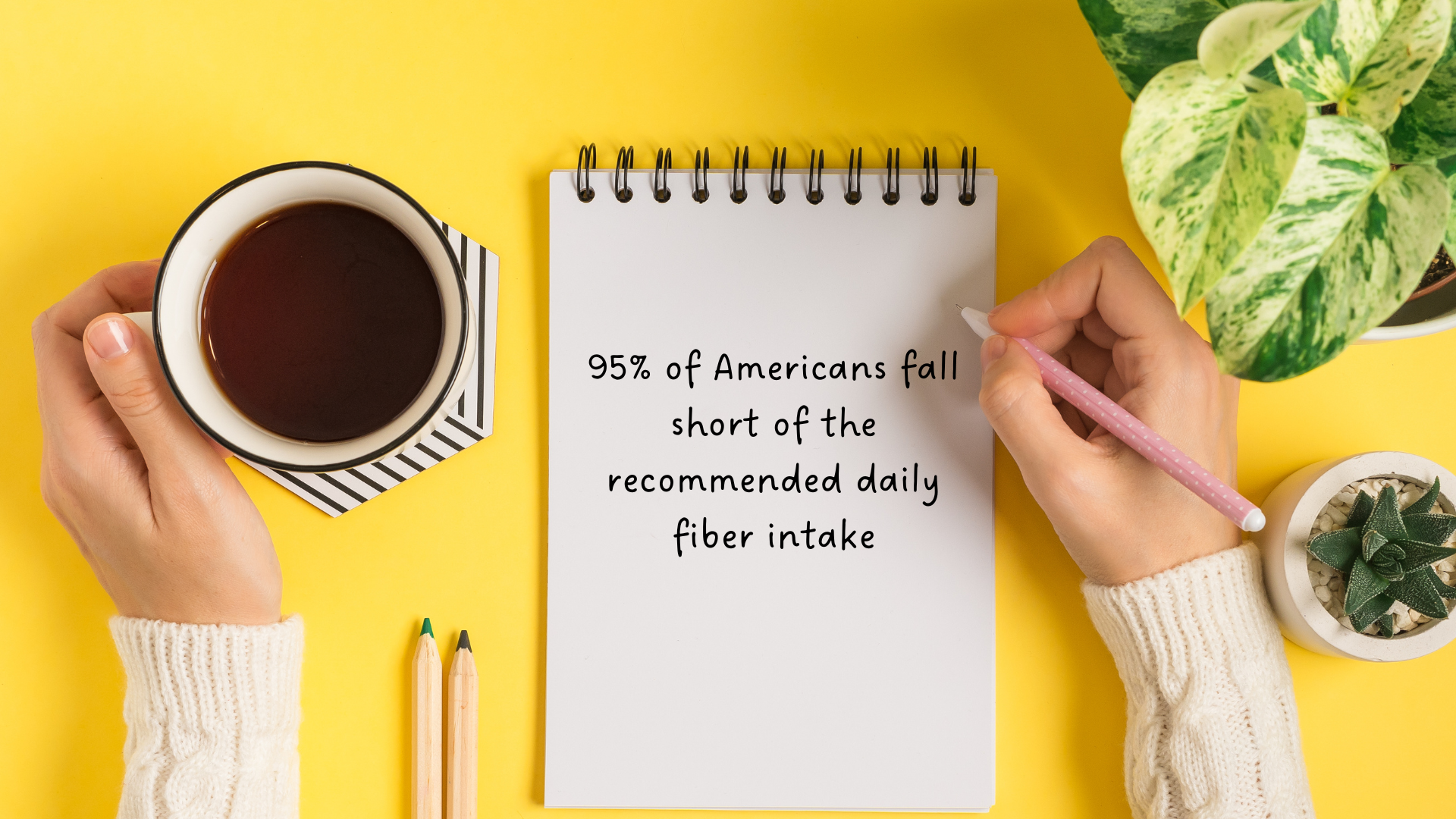
Despite its importance, 95% of Americans fall short of the recommended daily fiber intake, consuming an average of just 16 grams per day—far below the 25 grams for women and 38 grams for men recommended by health experts.
This “fiber gap” isn’t just about digestion. Research increasingly links fiber intake to gut health, inflammation control, and mental wellness through the gut-brain connection. As awareness grows, more people are seeking science-backed, nature-driven solutions. According to a Brightseed survey, 27% of U.S. adults now identify as “bioactivists”—people who believe that “food can be as powerful as medicine” and actively prioritize bioactive compounds like fiber and prebiotics in their diets.
So, how do we close the fiber gap and reclaim the health benefits of this essential nutrient?
One of the biggest reasons for widespread fiber deficiency is the shift toward ultra-processed foods, which have been stripped of their natural fiber. Compare these foods:
✅ 1 pear = 6 grams of fiber
✅ 1 cup of cooked oatmeal = 4 grams of fiber
❌ 1 Fast-Food Chain hamburger = just 1 gram of fiber
❌ 1 soda = 0 grams of fiber
A diet low in fiber has serious consequences, including:
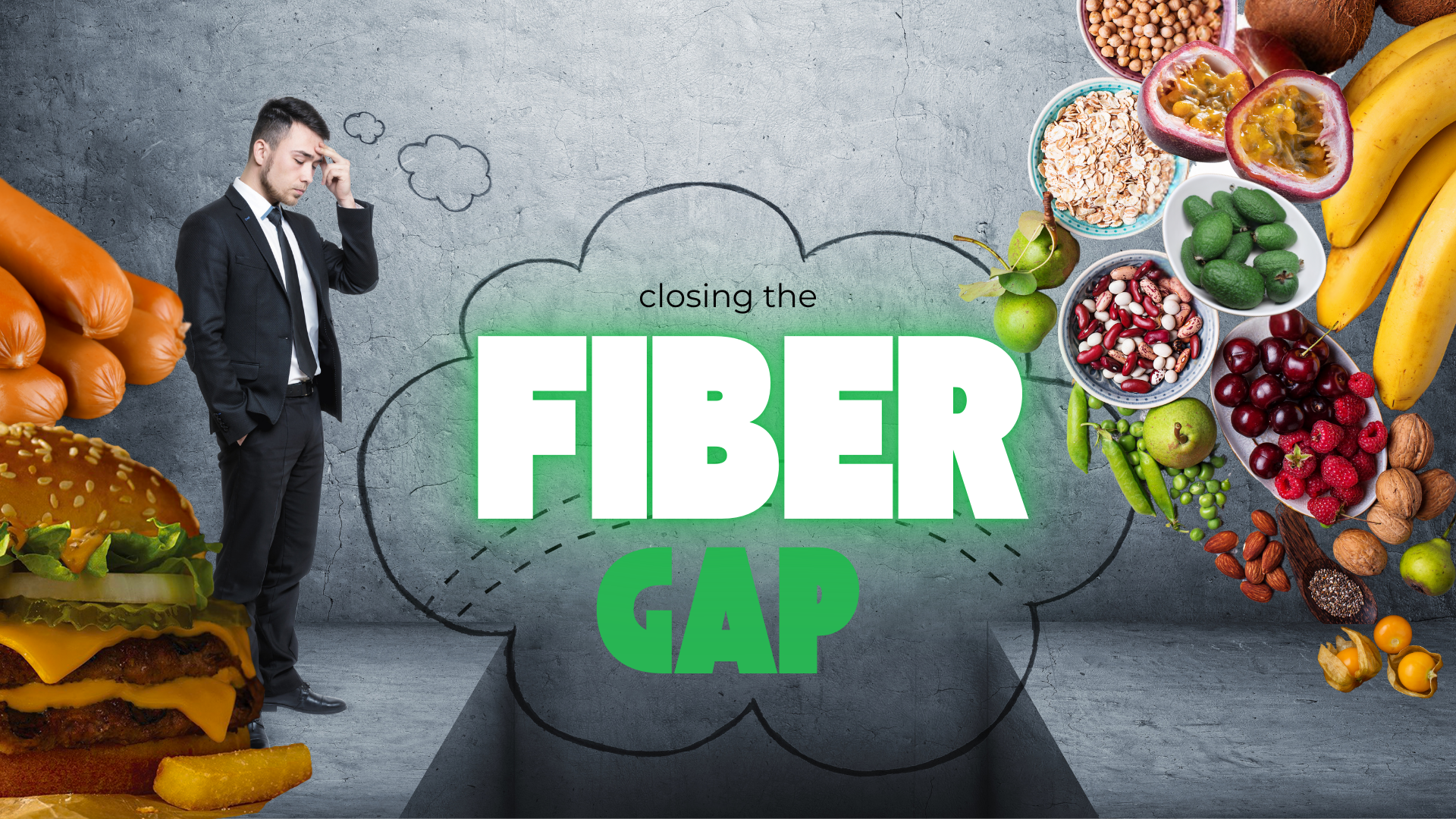
While the fiber gap is a major concern in the United States, low fiber intake is a global issue. Studies show that many Westernized diets, particularly in high-income countries, are alarmingly low in fiber due to the widespread consumption of processed foods. However, even in some developing regions, shifting dietary patterns and urbanization are leading to a decline in traditional high-fiber diets. The World Health Organization (WHO) has highlighted fiber deficiency as a global public health concern, linking it to rising rates of obesity, diabetes, cardiovascular diseases, and digestive disorders worldwide.
In contrast, populations that maintain traditional, plant-rich diets—such as in parts of Africa, South America, and Asia—often experience lower rates of chronic disease. This reinforces the importance of whole, fiber-rich foods like fruits, vegetables, and legumes in supporting long-term health and disease prevention across the globe.
But fiber isn’t just about digestion, it has a direct impact on brain function and mental well-being.
The gut and brain are in constant communication through the gut-brain axis, a complex network involving neural pathways (like the vagus nerve), immune signals, and hormones.
The trillions of bacteria that live in the gut—known as the gut microbiome—help regulate the production of neurotransmitters like:
Without enough fiber, gut bacteria starve, leading to imbalances (dysbiosis), which have been linked to stress, anxiety, and depression.
Conversely, chronic stress and anxiety can negatively impact gut health, creating a vicious cycle between digestion and mental well-being.
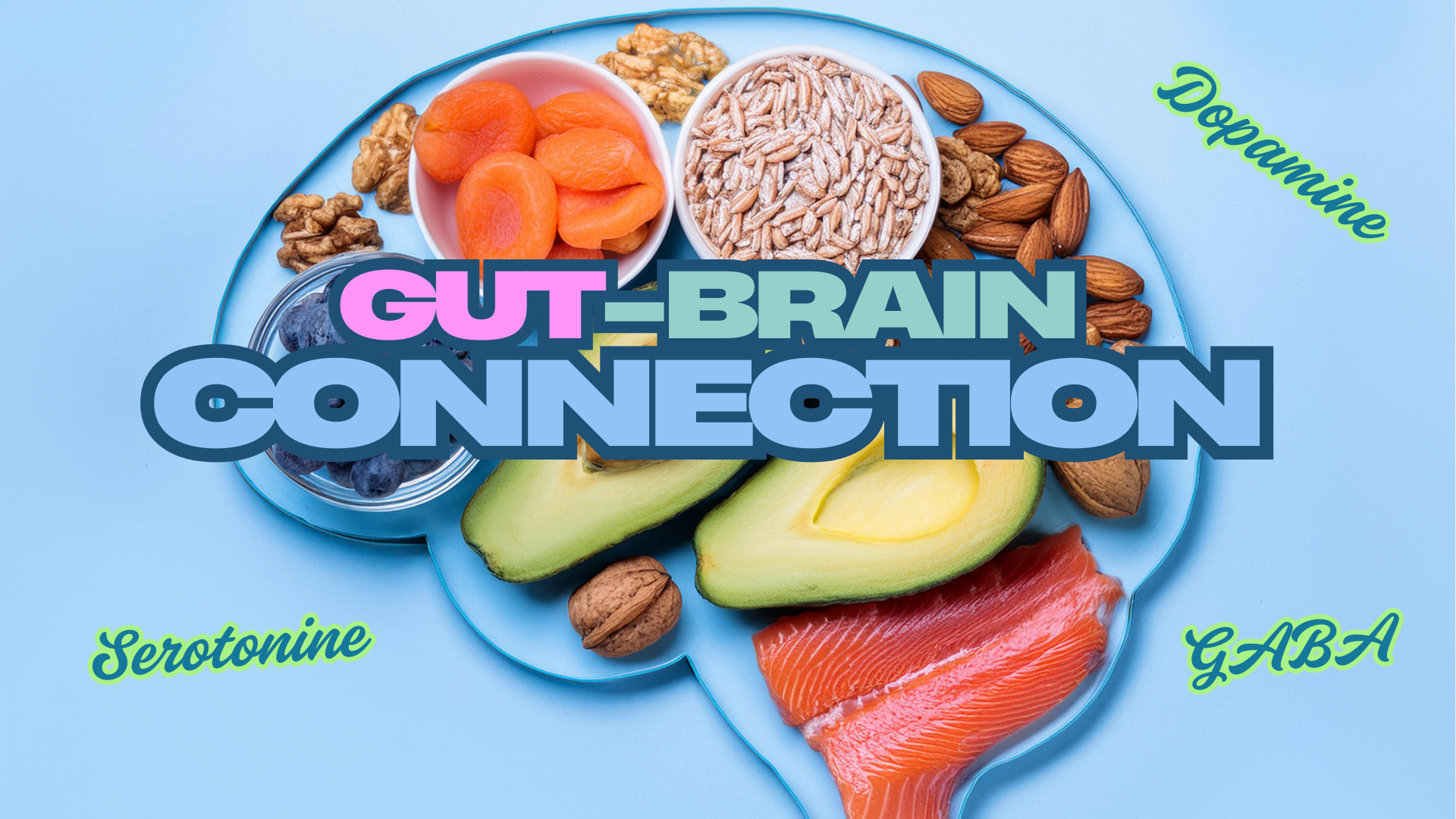
By increasing fiber intake, we can support both gut health and brain function—helping to regulate mood, reduce stress, and even improve cognitive performance.
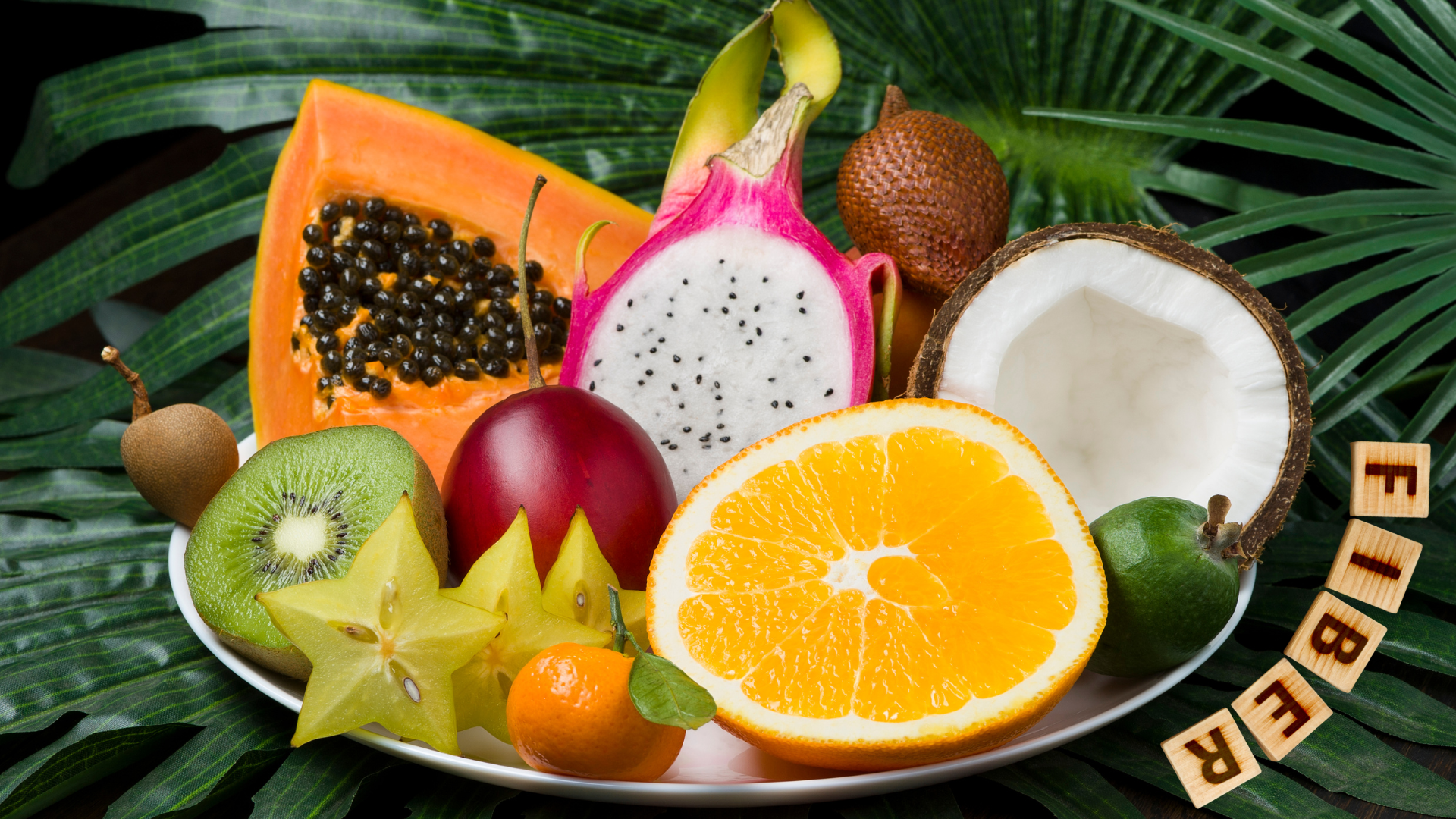
One of the simplest ways to increase fiber intake is by eating more whole, plant-based foods. Fruits and vegetables, in particular, provide not just fiber but also essential vitamins, antioxidants, and prebiotics that nourish the gut microbiome.
While fruits and vegetables are excellent sources of fiber, some contain significantly more fiber than others. The table below compares commonly consumed fruits in the U.S. with Colombian superfruits that offer superior fiber content and additional gut-supporting benefits.
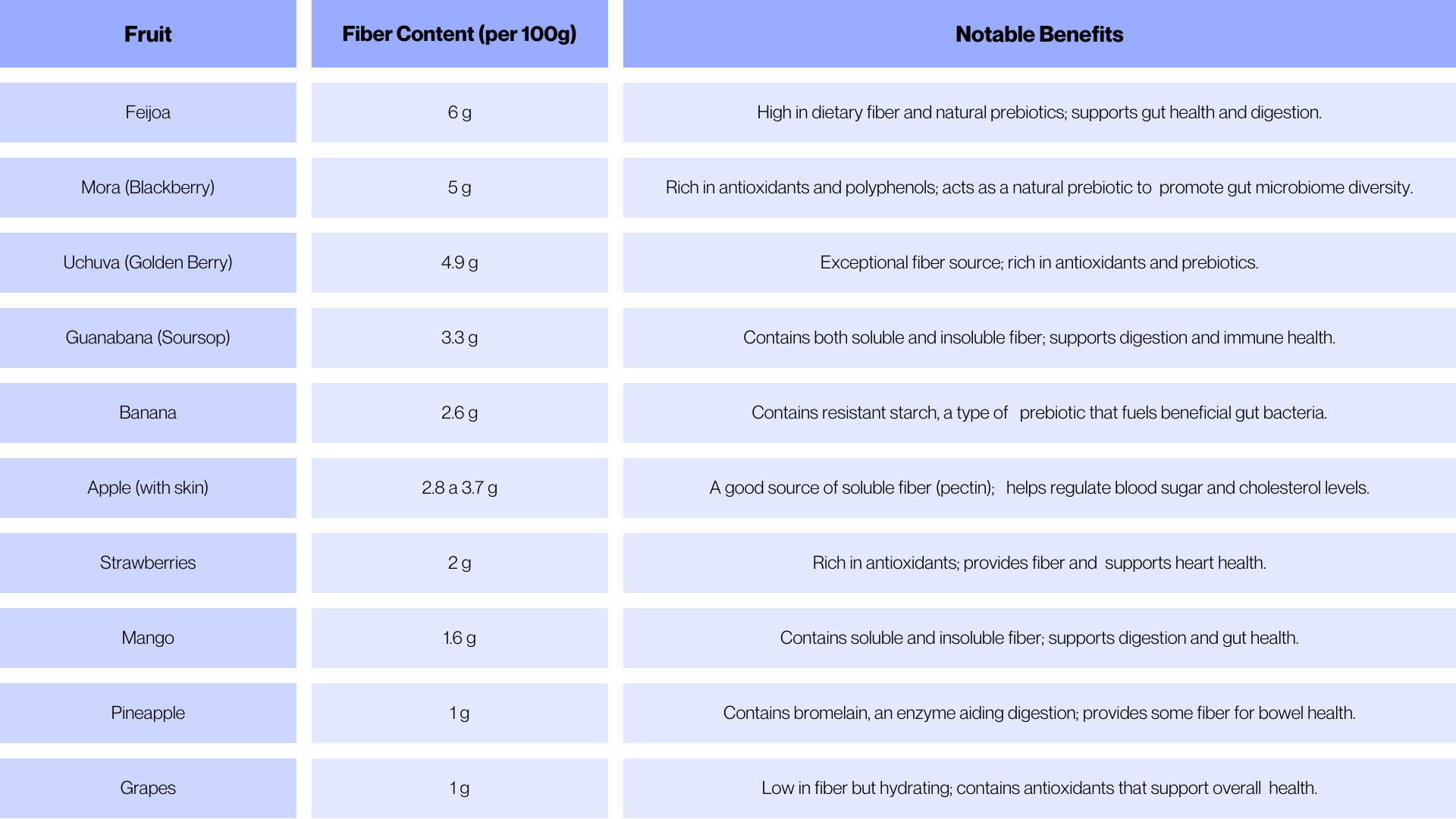
As seen above, Colombian superfruits provide nearly twice as much fiber as common fruits like apples, bananas, and grapes. In addition to fiber, they are packed with antioxidants and prebiotics, making them an excellent choice for gut health, digestion, and mental well-being.
Fiber isn’t just about keeping things moving—it plays a role in overall health and longevity:
✅ Supports the Gut Microbiome – Provides nourishment for beneficial bacteria, promoting gut balance.
✅ Regulates Blood Sugar and Cholesterol – Slows the absorption of sugar and cholesterol, helping reduce the risk of diabetes and heart disease.
✅ Reduces Inflammation – Prebiotic-rich fibers help lower chronic inflammation, which is linked to various diseases.
✅ Boosts Mental Health – Since the gut produces 90% of serotonin, a fiber-rich diet supports a stable mood and emotional well-being.
✅ Improves Cognitive Function – Research suggests a diverse gut microbiome can enhance memory, focus, and brain function.
Additionally, studies show that people with gut disorders like IBS are more likely to experience anxiety or depression, reinforcing the crucial link between fiber intake and mental health.
With growing awareness of gut health and bioactives, consumers are increasingly turning to science-backed, natural solutions for wellness. Incorporating fiber-rich fruits into your daily routine is easier than you think:
🥭 Blend them into smoothies for a gut-friendly start to your day.
🍍 Enjoy them fresh as a delicious and fiber-packed snack.
🍊 Try them dried for a convenient, portable fiber boost.
🍇 Add them to salads, yogurt, or oatmeal to enhance both texture and nutrition.
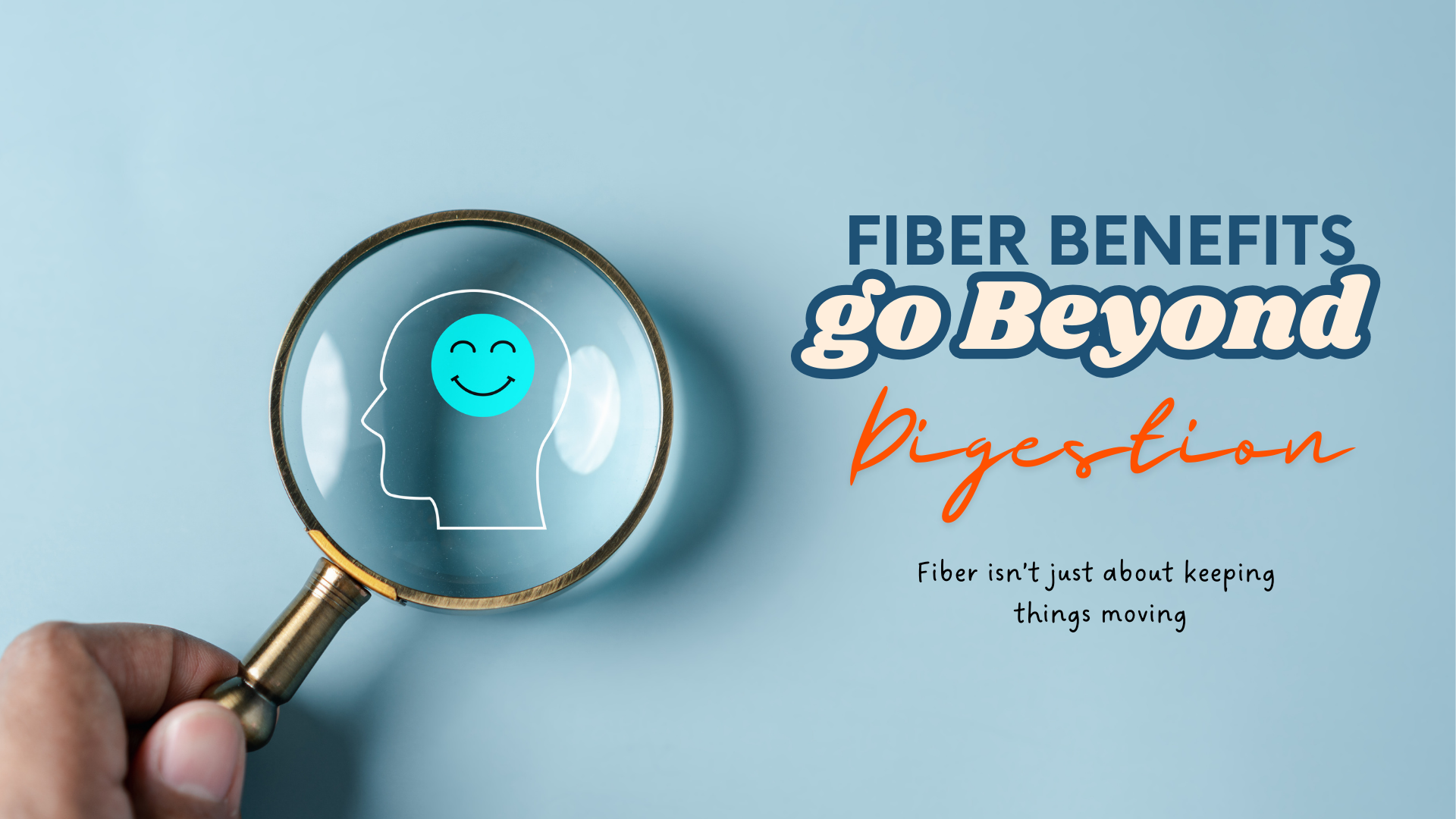
By making small, intentional dietary changes, we can nourish our gut microbiome, enhance mental well-being, and close the fiber gap—one fiber-rich bite at a time.
The fiber crisis is real, but the solution is right in nature’s hands. Whether it’s an apple, a bowl of strawberries, or a fiber-packed superfruit like golden berry, every choice brings us closer to better digestion, a healthier gut, and a stronger mind.
The key to closing the fiber gap is simple daily changes—adding more whole, fiber-rich foods to our plates. Start small: swap a low-fiber snack for a snack high in fiber, blend superfruits into your smoothie, or try a new fiber-rich food this week.
🌱 Your gut will thank you. Your mind will feel the difference. And your body will thrive.